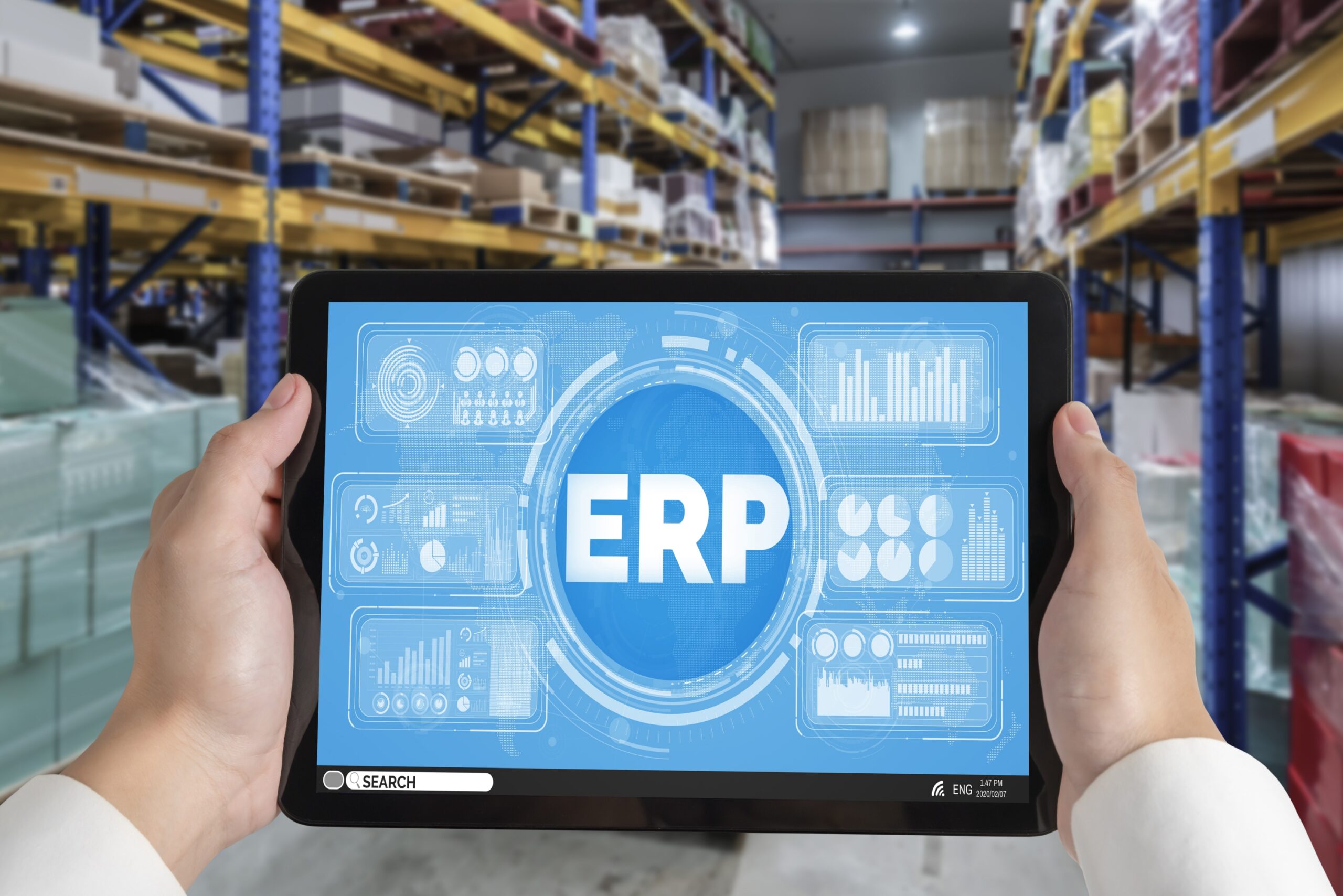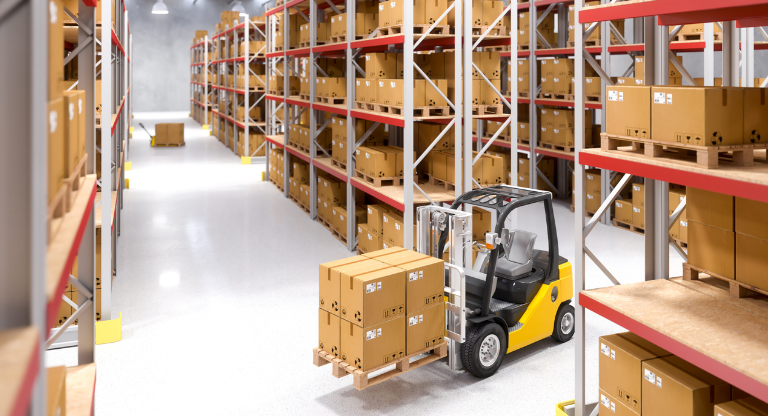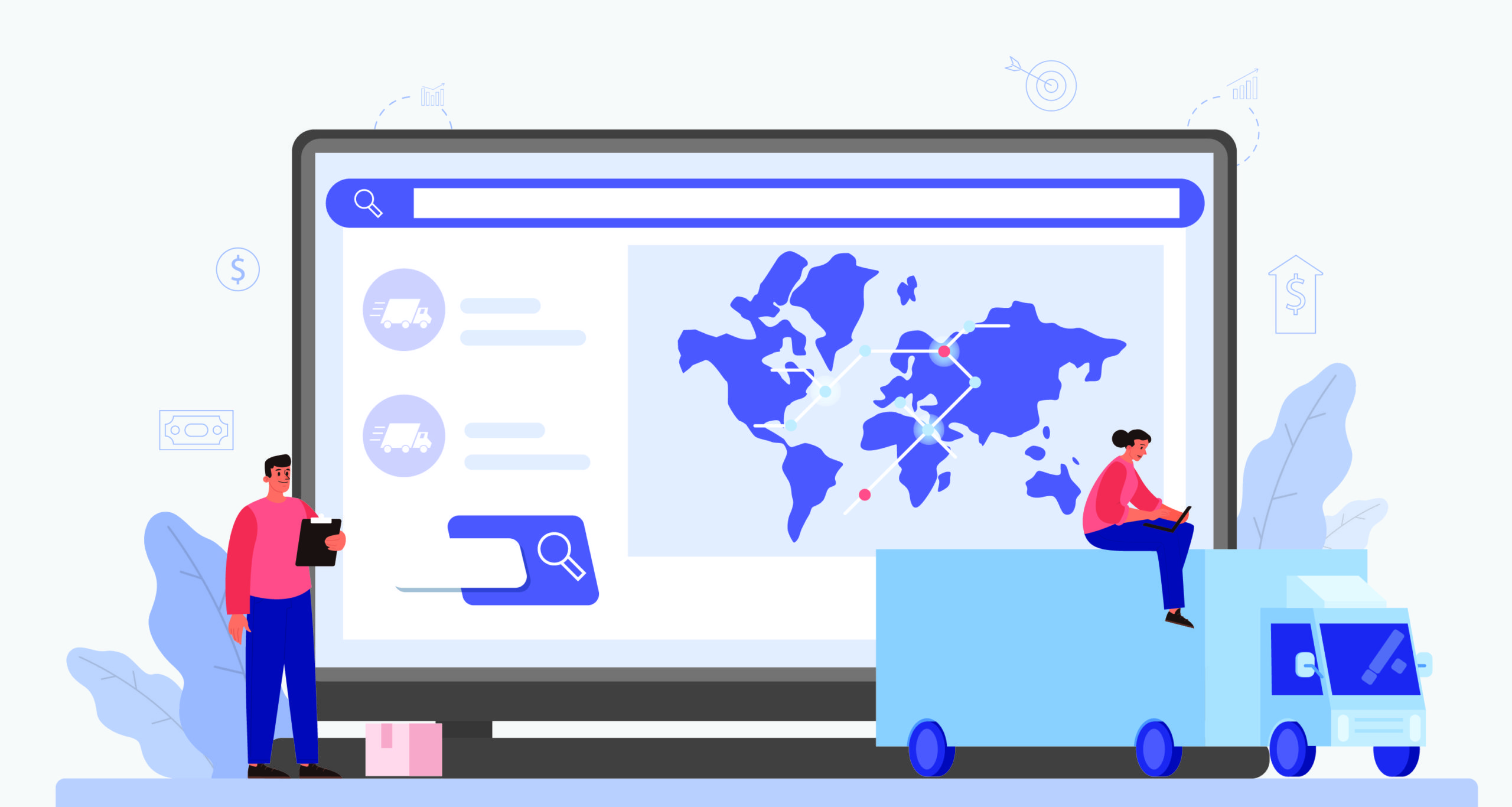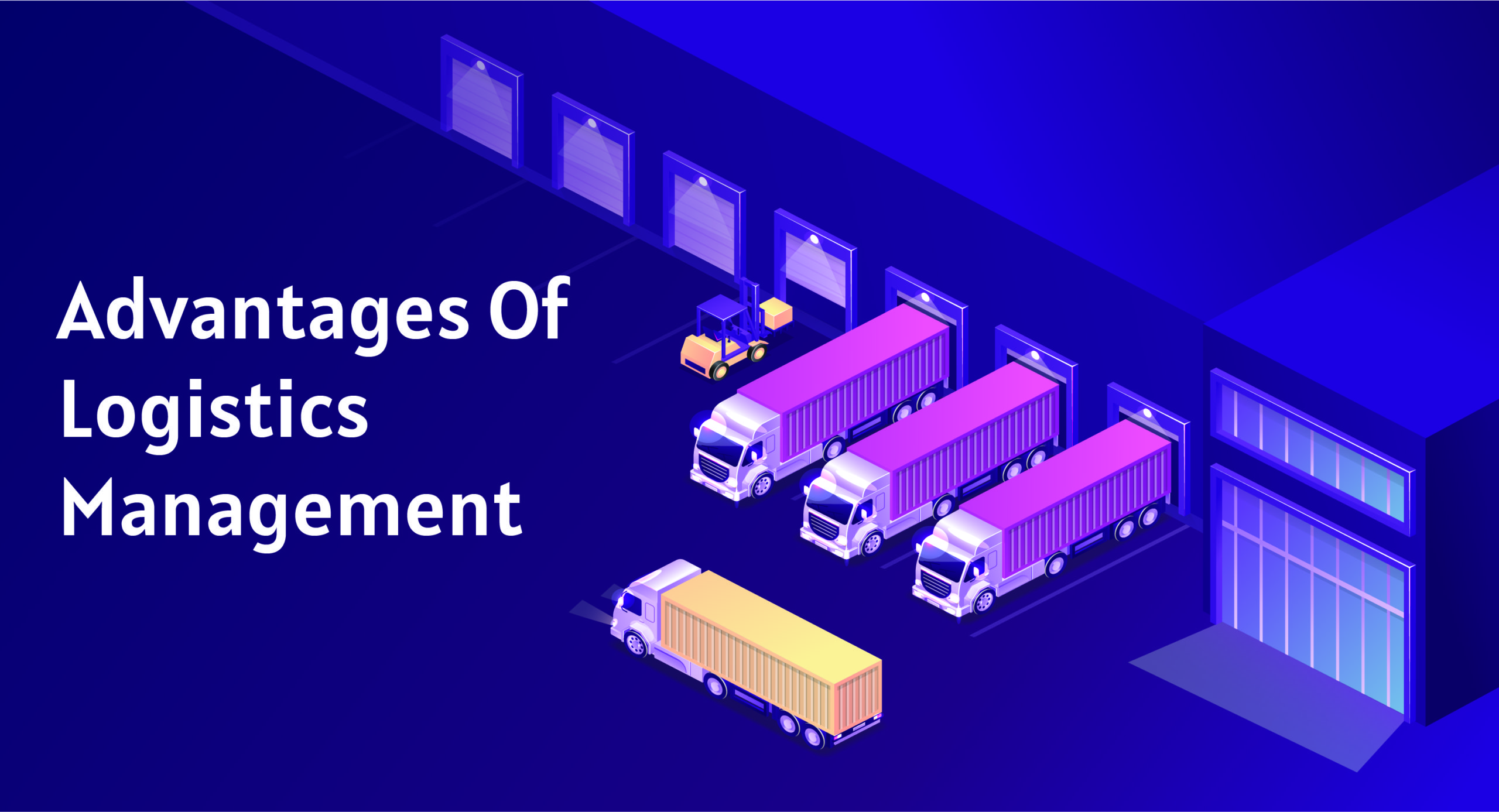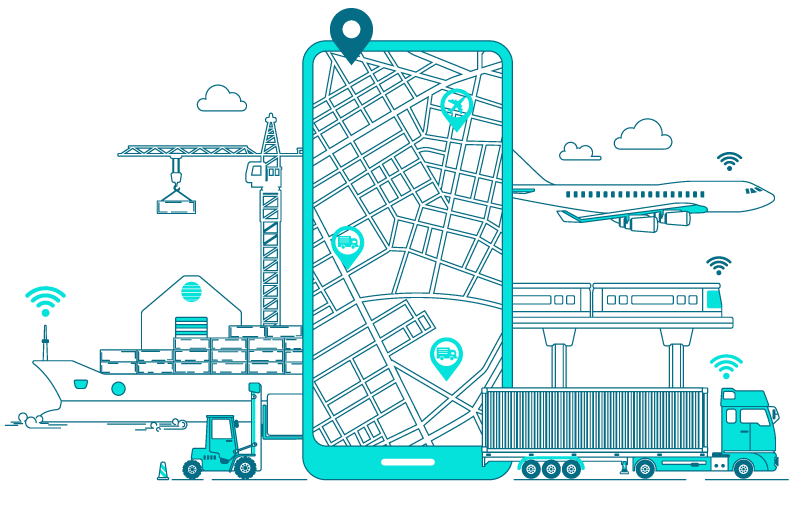Transportation and logistics are two industries that are though very competitive, but contributes a lot to India’s economy. Being a process heavy industry, keeping track of logistics operations and the flow of work is a very tedious job, thus there is need of enterprise grade software for logistics management. In general, such solutions are known as ERP which stands for “Enterprise Resource Planning.” It is a well-known tool for logistics management that helps in convenient flow of supply and demand. Certainly, the system is able to run different processes smoothly and deal with new, chaotic situations with ease.
As software, it can be used to run different business tasks through a single system. Enterprise software are very important because they bring together all the major attributes of a business on single platform. In the same way, it’s a robust solution that helps businesses manage manufacturing, supply chain modules, asset management, maintenance costs, and a lot more.
Therefore, Enterprise software for logistics management is a must for the growth and profitability of your business. Your company will be able to manage its assets much more efficiently, resulting in additional cost savings while guaranteeing worker safety and compliance with government regulations. In this article, we discuss in detail the safety, compliance, day-to-day operations, and other benefits that enterprise logistics management may have for your organisation, so that you can choose the enterprise software that works best for your organization.
If you own commercial fleets, following questions must have strike your mind:
- How can I save money on transportation?
- What is the best maintenance program for my commercial vehicles?
- Why the overall logistics operations costing me more?
You will get the accurate answers to all these questions from leading logistics management software provider Axestrack Software Solutions Pvt. Ltd. who developed SWIFT: India’s First & Most Trusted Unified Digital Logistics Platform.
LOGISTICS MANAGEMENT & SUPPLY CHAIN MANAGEMENT: THE CONNECTION
Logistics management comprises a subset of supply chain management and its all about managing the storage, distribution, and delivery of products, services, and associated data from starting point to end point. This is done in order to satisfy the needs of the end customer.
In business, logistics management is applicable across all industries. Its purpose is to oversee the accomplishment of project’s entire life cycle, supply chain, and ensuing efficiency. As organisations become increasingly complicated and expand into worldwide markets, business logisticians have transformed into supply chain logisticians.
Logistics management in industry focuses on two aspects: inbound logistics for internal activities and outbound logistics for the external flow from the origin point to the consumption point. The focus of logisticians is inventory management, purchasing, transportation, warehousing, consultancy, and the organisation and mapping of these activities.
WHICH INDUSTRIES NEED ENTERPRISE SOFTWARE FOR LOGISTICS MANAGEMENT?
Logistics management is essential for every company that uses vehicles for any of its operations. While companies in any industry can benefit from improved logistics management, those in sectors like supply chain stand to gain significantly more than their IT service counterparts. One thing that can’t be argued is that a logistics management solution will provide a positive return on investment for any company that operates a fleet of vehicles.
Therefore, the following industries and sectors need enterprise software for logistics management the most:
- Transportation & Logistics
- Construction and Mining
- Heavy Equipment’s
- Pharmaceutical
- Healthcare
- Education
- Security
- Ecommerce
- Online Aggregators: cab service, food delivery, package delivery, medicine delivery etc.
WHAT TYPE OF DATA CAN BE TRACKED BY AN ENTERPRISE LOGISTICS MANAGEMENT SOFTWARE?
Your commercial fleet, along with heavy equipment’s and smaller assets, all can be monitored with the help of enterprise logistics management software. It can also monitor the whereabouts of assets, the hours of operation of heavy machinery, and movement of the fleets. In doing so, organisation can get the most out of its resources while also streamlining its operations and eliminating waste from business processes. Driver behaviour such as speeding, aggressive manoeuvres, excessive idling, and other factors can be monitored with an enterprise logistics management system.
The Main Benefits of Enterprise Software for Logistics Management:
Here are five of the most important benefits of enterprise logistics management software, although they are many more benefits, click here for other benefits
- Vehicle Tracking: It means using GPS systems to keep track of every vehicle in the fleet.
- Route Optimization: It involves using data to plan the best route for each delivery or trip, so that less fuel is consumed and each delivery or trip takes minimum possible time.
- Fuel Management: It requires constant tracking and analysis of fuel use and the different variables that influence it. It is important because fuel is one of the biggest costs for fleet operators.
- Vehicle Maintenance: It means keeping an eye on and evaluating the overall health of a fleet vehicle’s all the time. While normal wear and tear is unavoidable, but overuse can cause extra costs that can be avoided by regular monitoring.
- Driver Behaviour Tracking: Telematics are used to keep track of how drivers act. A fleet’s safety record can be made much better with constant tracking, timely interventions, and incentive programmes.
HOW AXESTRACK’S ENTERPRISE GRADE LOGISTICS MANAGEMENT SOFTWARE ASSIST IN BETTER DECISION MAKING:
Axestrack has been making logistics operations more seamless every day via bringing in more features to the Digital Logistics Platform which help in improved planning and decision making.
Enterprise Digital Thread: It seamlessly transports digital data across many stakeholders and organisational systems. Once a customer logs into the system, not need to exit to conduct any manual tasks. The platform enables the customer to “digitally” create, transform, and manage all logistical business information. Our enterprise grade software makes a digital connection between three key components of Supply Chain, Man, Machine and Material.
The digital connection is managed via four building blocks –
- Digital Customer: Mapping customer sentiments and outcomes digitally and derive great decisions. The customer set includes customer’s customer, partners, suppliers, and others, thus covering all stakeholders in the ecosystem;
- Digital Persona: Creating digital profiles between driver, vehicles, route, and material;
- Digital Ops: Having a single window via Control Tower, powered by AI-driven traffic management system; and
- Digital Workforce: Mapping employee, asset and material movements within shop floor, plant, warehouse and so on.
AI Control Tower: Using data science and massive data sets of roads, dhabas, fuel stations, police stations, emergency services, and historical data of truck movements/stoppages across India, the AI module can now anticipate and recommend if an unknown place is a “loading/unloading” point. Similarly, based on data science, it may also forecast and suggest probable “stoppage” locations and potential areas where market fleet trucks would load up.
In addition, a review mechanism enables control tower manager to seek guidance from the supervisor in order to finalise their decision-making. Governance and escalation systems have been implemented to monitor the fleet’s overall performance, bringing the fleet’s efficiency close to 99 percent. Such skills have assisted clients in addressing unanticipated events that can endanger the fleet and, in turn, the company’s reputation.
Click here to know more about AI-Powered Control Tower
LOGISTICS MANAGEMENT: TIPS & TRICKS FOR DEALING WITH DISRUPTIONS
Because of the epidemic, businesses have had to rely more heavily on logistics management to meet fluctuating client needs and keep the economy functioning. Supply chain disruptions can be caused by a variety of factors, including natural disasters, political unrest, and continuous innovation. The logistics industry is prone to disturbances, therefore it’s important to create certain best practises to improve scalability, guarantee on-time delivery, and reduce service interruptions. Thanks to ongoing digitalization efforts, the modern supply chain has access to new technologies and tools that promise to increase productivity and precision.
Here are a few suggestions for addressing disruptions in logistics management:
- For agility & cost-efficiency, leverage crowdsourcing capabilities to get the most out of your employees and vehicles. This will save money, help meet demand spikes, and make the last-mile delivery process more efficient.
- Adopt contactless delivery and payment solutions to protect the health and safety of your customers and employees. Adaptability to several payment methods, such as tap-and-go and digital wallets, can also increase customer happiness.
- Maintain a backup plan to deal with unforeseen situations. Establish a “crisis team” to guarantee readiness for any logistical crisis.
- Real-time and dynamic routing features can maximise delivery efficiency, emergency delivery, and various drop-off points along the same route.
- Consider introducing cost-effective methods and value-added services for customers to maintain price control and avoid unwarranted price increases.
- Create a “dark store” that can be used as a distribution centre to support a “click-and-collect” service, in which a customer receives his/her online orders, or as a platform for order fulfilment for online sales.
- Continue to invest in emerging technologies, such as artificial and augmented intelligence, advanced analytics, automation, warehouse robotics, and many more, to enhance the scalability and competitiveness of businesses.
BUILD YOUR ENTERPRISE LOGISTICS MANAGEMENT WITH AXESTRACK
Traditionally, management was entirely defined by vehicles and infrastructure. The playing field has been changed by mobile devices, GPS systems, and continuous innovation in the present day. Therefore, if you want to keep a competitive advantage over your peers, you must invest in a modern logistics management system that is enterprise ready.
As a provider of telematics business solutions for more than a decade, we would be delighted to answer any questions you may have, contact us, or mail your queries at: marketing@axestrack.com.
Thank you for reading! If you enjoyed this article, please subscribe to our newsletter, and get informative posts about fleet management, GPS tracking, data analytics, business intelligence, and optimizing logistics & supply chain operations.
